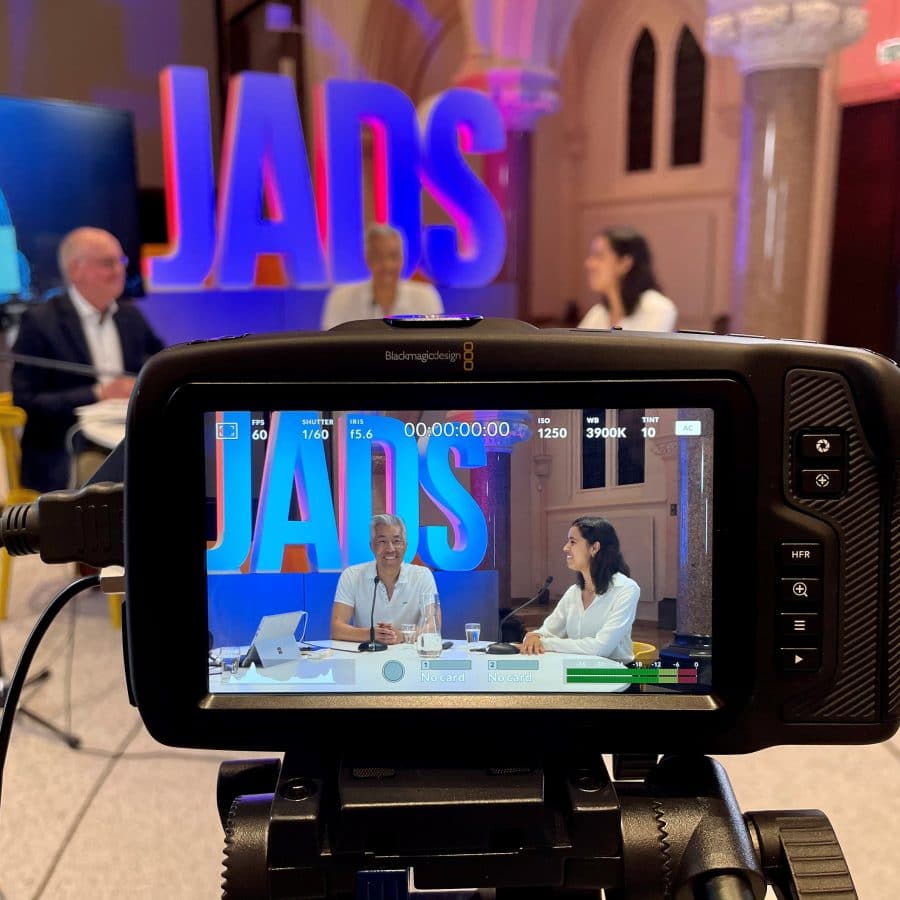Expert Talk: How coaches can improve your health with data
Expert Talk: How coaches can improve your health with data
Health Coaches, Health Data, and Their Interaction
Wearable devices enable continuous collection of health data. These data may not only be useful for users themselves, but also for health coaches (e.g., dieticians and personal trainers). Such data can provide useful information, additional to the client’s self-report, on trends and correlations of health metrics such as physical activity, sleep, and heartrate measurements.
In this Expert Talk, Emile Aarts talks to guest Heleen Rutjes about how health coaches can make use of clients’ health data to improve their health. They will cover questions such as how coaches may effectively collaborate with data-driven health recommendations, what is needed for coaches to trust these tools, and what the impact is of health data on coach-client interactions. The topics they will discuss will be a cross-over from the fields Health Informatics, Recommender Systems, Explainable AI, and Human-AI Interaction.

About Heleen Rutjes
Heleen Rutjes is a Postdoctoral Researcher at the Human-Technology Interaction group, Eindhoven University of Technology. She recently finished her PhD thesis entitled ‘Health Coaches, Health Data, and Their Interaction’, which she will defend on October 12th, 2021. With a background in both psychology (BSc) as well as mathematics (MSc), Heleen is keen on understanding people, data, and their interaction. She combines qualitative and quantitative research methods to understand people’s perceptions on technology, and what is needed in order to make effective collaboration between people and technology possible. More specifically, she is interested in explainable AI (XAI), mental models of AI, intelligent and interactive systems; all with a human-centered focus. Heleen applies these concepts mostly in the health domain.
Before her PhD, Heleen has worked as statistical consultant at CQM, Eindhoven, and as a high school teacher in mathematics. In these roles too, she has been focusing on how people understand abstract concepts in mathematics and statistics, and explaining it accordingly. Heleen also volunteers as guest lecturer at primary schools to encourage children to critically reflect on AI, and to inspire especially girls to engage in the research and design of AI, aiming for more diversity in the development of the technology of the future.
About her research
Wearable devices enable continuous and in-situ collection of health data. These data may not only be useful for users themselves, but also health coaches (e.g., dieticians and personal trainers) may use these data. Such health data potentially provide useful information, additional to the client’s self-report, on trends and correlations of health metrics such as physical activity, sleep, and heartrate measurements. Still, the needs of coaches regarding these data are not fully understood. In addition, it is unclear what the actual influence is of health data on the coaching process, including the dynamics between coaches and clients.
The Doctoral Thesis ‘Health Coaches, Health Data, and Their Interaction’ of Heleen Rutjes addresses these topics. Using a mix of qualitative and quantitative methods, this dissertation sheds light on the interplay between coach, client, and data, with a particular focus on the coaches’ needs and experiences when using data.

About the Expert Talks
In early 2020, JADS launched the concept of Expert Talks. Small scale, interactive, hybrid events where an expert in a certain field gives a presentation about their personal experiences and expertise on a data science related subject. He or she is then joined at the table by other experts, industry leaders or young talent for an interactive discussion, in which the audience can participate as well.